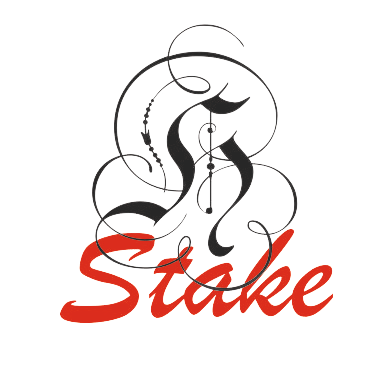Mid-career professionals, typically those with 10-25 years of experience, have amassed considerable skills and knowledge, but they may also face challenges such as stagnation, burnout, or a desire for change. This stage often brings unique difficulties, including ageism, industry shifts, and competition from younger talent. However, mid-career individuals also have the advantage of valuable experience, a well-developed network, and the capacity to leverage their expertise in more strategic and impactful roles, positioning them for significant career advancements if approached correctly.
As industries continue to evolve due to technological advancements, economic shifts, and globalization, mid-career professionals must stay informed and adaptable to remain competitive. This period often involves a reassessment of career goals and priorities, with many professionals seeking roles that offer greater work-life balance, personal fulfilment, or alignment with their long-term aspirations. A strategic job search, therefore, becomes crucial, as it enables these professionals to navigate the changing landscape, capitalize on emerging opportunities, and align their career trajectories with current market demands. The key to a successful job search for mid-career professionals lies in employing a strategic and proactive approach which entails:
Self-Assessment and Career Clarity
To achieve career clarity, mid-career professionals should start with a comprehensive self-assessment. This involves evaluating their career journey to date by identifying key skills, significant achievements, and the areas where they excel the most. By understanding these strengths, professionals can better articulate their value to potential employers. Additionally, it’s important to identify any gaps in skills or experience, such as technical knowledge, leadership abilities, or industry-specific expertise, that might be critical for the roles they aspire to. Addressing these gaps through further training or experience can significantly enhance their marketability.
Next, professionals should take the time to redefine their career goals, ensuring they align with current market demands. This might involve reflecting on long-term aspirations and considering how these fit within evolving industry trends. In some cases, professionals may need to adjust their goals to take advantage of opportunities in growing sectors or emerging roles. They should also consider whether they want to pursue vertical growth within their current field or explore lateral moves that could offer new challenges, skill sets, or a better work-life balance.
Personal branding is another crucial element of career clarity. Mid-career professionals should focus on creating a compelling professional identity that highlights their strengths, values, and the unique value they bring to potential employers. Developing a strong value proposition is key to differentiating themselves from other candidates. This proposition should communicate why they are the best fit for the roles they are targeting, drawing on their experience, skills, and the distinct qualities that set them apart in the job market.
Networking and Professional Relationships
Mid-career professionals should leverage their existing networks by reconnecting with former colleagues and mentors from past workplaces or educational institutions. These relationships may lead to job openings, recommendations, and insightful information about market trends. Engaging with industry associations and alumni networks is another powerful way to tap into tailored resources, such as job boards, networking events, and professional development opportunities. These groups foster relationships with professionals in the same field, offering guidance, collaboration, and support in career growth.
In addition to utilizing existing connections, building new relationships is essential for career advancement. Attending industry conferences, seminars, and workshops provides opportunities to meet new contacts, exchange knowledge, and stay updated on current industry trends. Mid-career professionals should also join professional groups, both in-person and online, such as LinkedIn communities. These platforms allow for continuous learning, interaction, and the opportunity to connect with industry experts, enhancing professional credibility and expanding networks.
When networking, it’s crucial to follow proper etiquette. Effective communication strategies involve building relationships with genuine interest, rather than networking solely for job prospects. Listening actively, offering assistance where possible, and showing respect are key elements of successful networking. After meeting new contacts, follow-up communication is essential—whether through thank-you notes, LinkedIn connections, or periodic check-ins. This helps maintain and strengthen the relationships, ensuring they remain mutually beneficial over time.
Leveraging Online Platforms and Resources
To effectively leverage online platforms, mid-career professionals should optimize their LinkedIn profiles, which serve as a digital resume and networking tool. Crafting a strong headline that clearly states your current role or the type of job you seek is essential, as it’s one of the first things potential employers notice. A compelling summary should follow, highlighting your key skills, achievements, and career aspirations in a way that reflects your professional identity. Additionally, showcasing a comprehensive list of your skills, along with endorsements from colleagues and professional recommendations, adds credibility and makes your profile stand out to recruiters and hiring managers.
Utilizing job boards and career websites is another critical step in the job search process. Platforms like LinkedIn, Indeed, and industry-specific sites are particularly effective for mid-career professionals, as they often feature roles suited to those with significant experience. To streamline the search, set up job alerts to receive timely notifications about relevant openings. Tracking your applications is equally important—use spreadsheets or job search apps to organize your submissions, follow-ups, and interview schedules, ensuring that no opportunity slips through the cracks.
For those targeting specialized or senior-level roles, exploring niche job search platforms can be highly beneficial. Industry-specific job boards, such as Dice for tech professionals or Mediabistro for media roles, often provide more tailored opportunities. Executive search platforms are also valuable for senior positions. Mid-career professionals may want to engage with headhunters who specialize in placing experienced candidates in high-level roles, as these recruiters can connect them with exclusive opportunities that are not publicly advertised.
Resume and Cover Letter Refinement
To tailor your resume for mid-career roles, it’s essential to emphasize the most relevant experience and accomplishments that align with the position you’re targeting. Focus on highlighting key roles where you demonstrated significant impact, using quantifiable data such as percentages or monetary figures to showcase your achievements. Additionally, ensure your resume is optimized for Applicant Tracking Systems (ATS), which many companies use to screen candidates. Incorporate relevant keywords from the job description and maintain a simple, clean format to help your resume pass through these automated systems effectively.
Crafting a persuasive cover letter is equally important, especially when dealing with career transitions or employment gaps. If you are changing industries or have a gap in your employment history, use the cover letter to explain these transitions and articulate how your skills and experiences are transferable to the new role. Customize each cover letter to the specific job, showcasing how your background aligns with the company’s needs, culture, and long-term goals. A well-tailored cover letter helps demonstrate that you’ve done your research and are genuinely interested in the position.
For professionals in fields like design, writing, consulting, or management, creating a professional portfolio can be a powerful supplement to your resume and cover letter. A portfolio allows you to present work samples, case studies, or detailed descriptions of projects you’ve led or contributed to, offering tangible proof of your capabilities. Including these work samples not only enhances your credibility but also gives potential employers insight into the quality and scope of your work, which can be particularly persuasive in competitive job markets.
Preparing for Interviews
Investigating possible employers is an essential first step in interview preparation. Understanding the company’s culture, mission, and values can help you assess whether it aligns with your own professional goals and work style. This knowledge allows you to tailor your responses during the interview, showing that you’ve done your homework and are genuinely interested in contributing to the company. Furthermore, a detailed examination of the job description aids in pinpointing the essential competencies and work history that the company is looking for. This enables you to prepare specific examples from your career that directly address the job requirements.
For mid-career professionals, interviews often focus on leadership, management, and problem-solving abilities. You can expect questions that ask you to demonstrate your leadership style, how you’ve managed teams, and how you’ve overcome challenges in previous roles. Prepare detailed examples to highlight your experience and approach to leadership. If you’re transitioning into a new industry or role, be ready to explain your reasons for the change and how your past experiences equip you for the new position. A well-structured explanation can help reassure employers that you’re capable of adapting and bringing valuable insights to a new field.
After the interview, follow-up is essential. Sending a thank-you note to your interviewer(s) is a professional courtesy that also reinforces your interest in the role. This note should express gratitude for the opportunity, briefly restate your enthusiasm for the position, and highlight a key point from the interview. Keeping the communication channel open is also important—if you don’t hear back in a reasonable time frame, a polite follow-up inquiry shows your continued interest and demonstrates professionalism without being overly persistent.
Exploring Alternative Career Paths
Exploring alternative career paths can provide mid-career professionals with new opportunities for growth and fulfilment. One option to consider is entrepreneurship or freelancing, which offers greater independence and the flexibility to shape your career direction. However, these paths come with risks such as income instability, lack of benefits, and increased responsibility. It’s crucial to evaluate your risk tolerance and financial readiness before leaping. If you decide to pursue entrepreneurship or freelancing, start by developing a solid business plan, building a network of clients, and setting up the necessary financial and legal structures to ensure long-term success.
For those looking to transition to a new industry, focusing on transferable skills is key. Many mid-career professionals possess leadership, project management, and problem-solving abilities that can be applied across different sectors. To facilitate the transition, consider strategies such as taking courses, earning certifications, or attending industry events to build relevant knowledge and connections in your new field. These steps will help you bridge the gap between your previous experience and the requirements of your target industry.
Further education and certifications can also play a vital role in career growth, especially when transitioning to a new field or seeking advancement. Identify relevant certifications, courses, or even advanced degrees that align with your career goals and make you more competitive in the job market. Balancing education with job search efforts can be challenging, so it’s important to manage your time effectively. Prioritize courses that directly enhance your employability and ensure that your educational pursuits complement, rather than hinder, your job search.
Working with Recruiters and Career Coaches
Engaging with executive recruiters can be highly beneficial for mid-career professionals seeking new opportunities. To maximize this relationship, it’s important to identify recruiters who specialize in your industry or experience level, as they are more likely to understand your background and provide relevant job leads. Building a strong relationship with recruiters involves maintaining transparency about your career goals, offering feedback, and staying in regular contact to ensure they keep you in mind for future opportunities.
Hiring a career coach can also be a valuable investment in your professional growth. A career coach offers personalized guidance, helping you clarify your goals and develop a strategic plan tailored to your needs. If you’re facing career plateaus or challenges, a coach can assist in identifying barriers to your success and provide actionable strategies to overcome them, ultimately helping you progress in your career.
Financial Planning During Job Search
Financial planning is crucial during a job search, especially when transitioning between jobs. Creating a budget tailored to this period helps manage income loss, ensuring that you prioritize essential expenses while cutting back on non-essential costs. It’s also important to explore any unemployment benefits or financial assistance programs available, as these resources can provide temporary financial support and ease the pressure during your job search.
Once you secure a job offer, negotiating salary and benefits is a critical step. Start by researching market rates for your target role using salary comparison tools, so you enter negotiations with a clear understanding of what constitutes fair compensation. When negotiating, confidently present your value, using your skills and experience to justify your requests. If a company cannot meet your salary expectations, consider negotiating other aspects of the compensation package, such as additional benefits, flexible work arrangements, or professional development opportunities.
Maintaining Motivation and Well-being
Maintaining motivation and well-being during a job search is essential for long-term success. One way to manage stress is by practising effective time management and setting realistic goals. Break down the job search process into smaller, achievable tasks, such as sending out a certain number of applications per week or networking with a set number of contacts. This structured approach reduces overwhelm, helps you stay organized and on track. To manage anxiety, especially in the face of rejection, employ techniques like mindfulness or relaxation exercises. Seeking emotional support from friends, family, or even a therapist can also help you cope with the ups and downs of the search process.
Staying motivated is equally important. Celebrate small victories, such as securing an interview or expanding your professional network, as these milestones can help you stay positive and energized. Assemble a network of people who are sympathetic and cognisant of the difficulties involved in job searching. Friends, family, or fellow job seekers can provide encouragement, share advice, and help you maintain focus, making the process feel less isolating and more manageable. By keeping a positive mindset and relying on your support system, you’ll be better equipped to sustain motivation and navigate the challenges of your job search.
Conclusion
The key to a successful job search for mid-career professionals lies in employing a strategic and proactive approach. From self-assessment to leveraging online platforms, networking effectively, and refining resumes, each step plays a critical role in positioning yourself as a strong candidate. Embracing alternative career paths, working with recruiters, managing finances, and preparing thoroughly for interviews further enhance your job search efforts. Throughout the process, maintaining motivation and well-being, managing stress, and staying organized is essential for staying on course.
For mid-career professionals, staying positive and persistent is crucial. The right opportunity will come with the proper effort and a resilient mindset. It’s also important to embrace change, viewing it not as a challenge but as an opportunity for personal and professional growth. By being open to new paths and committed to self-improvement, mid-career professionals can navigate the evolving job market and achieve success in their career transitions.





